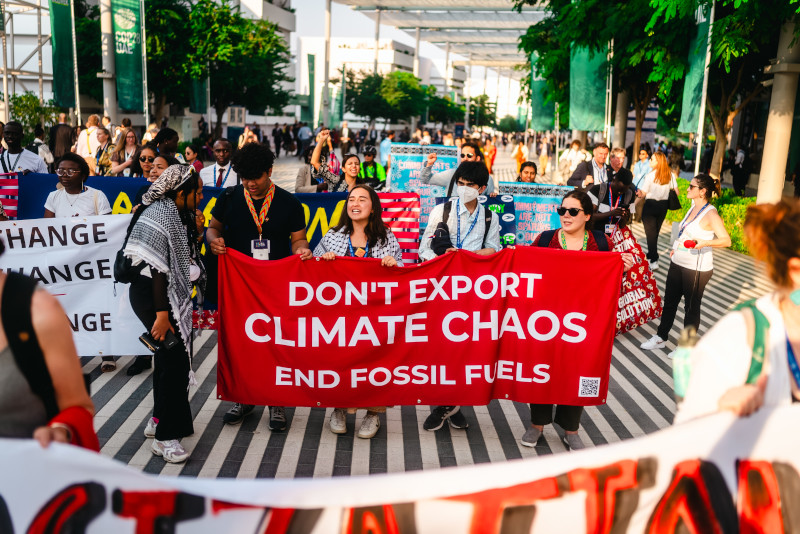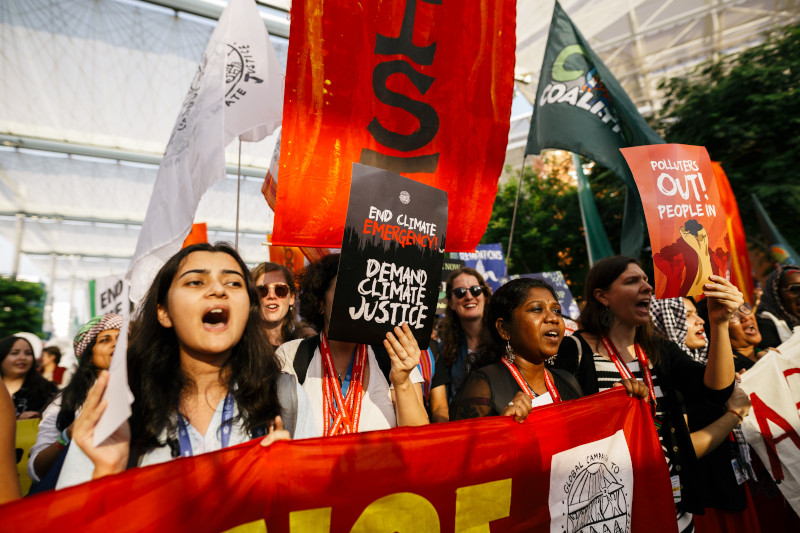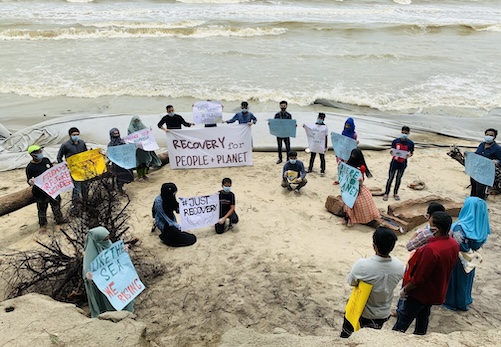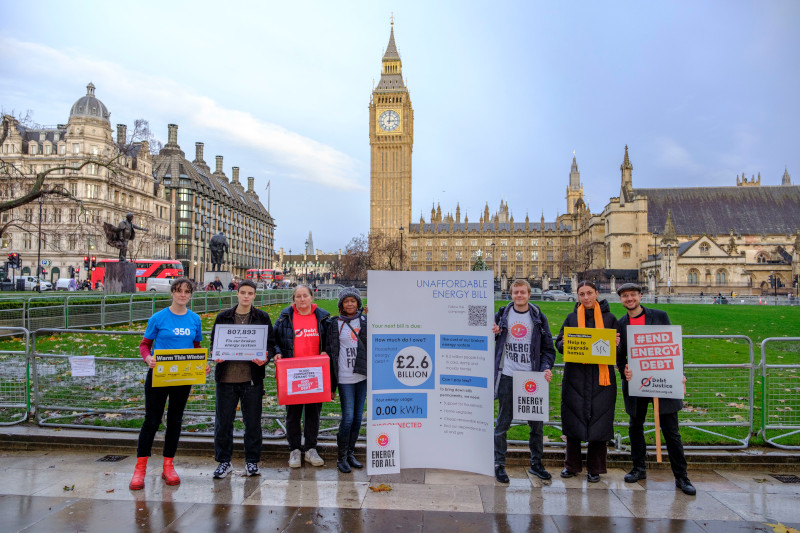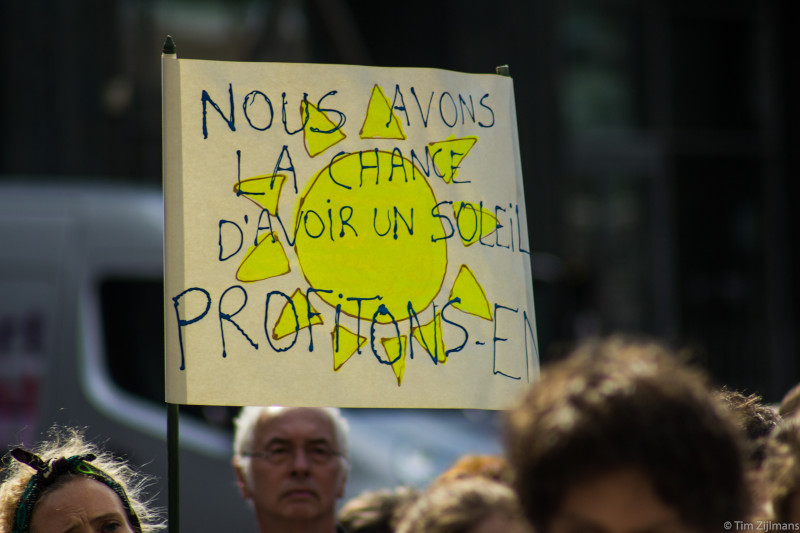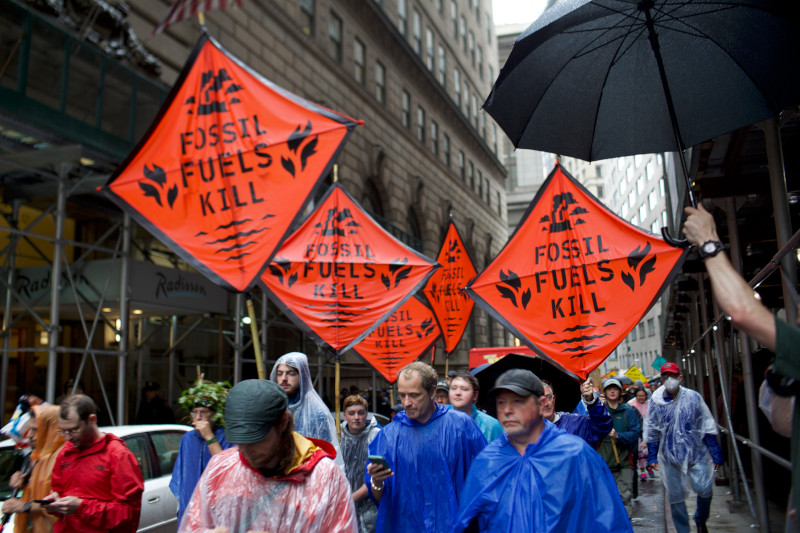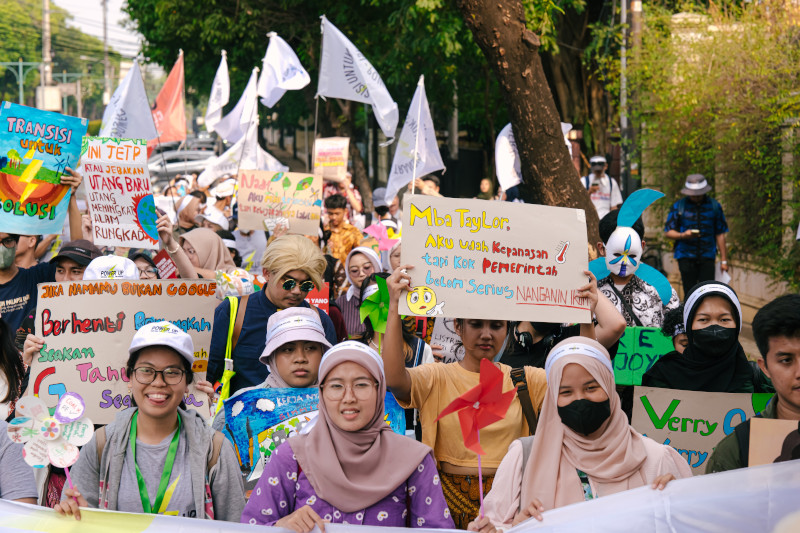Demand Climate Ambition!
Our political leaders have the chance to overturn the climate crisis through committing and acting on bold national climate action plans. Let's demand they raise ambition and commit to good NDCs!
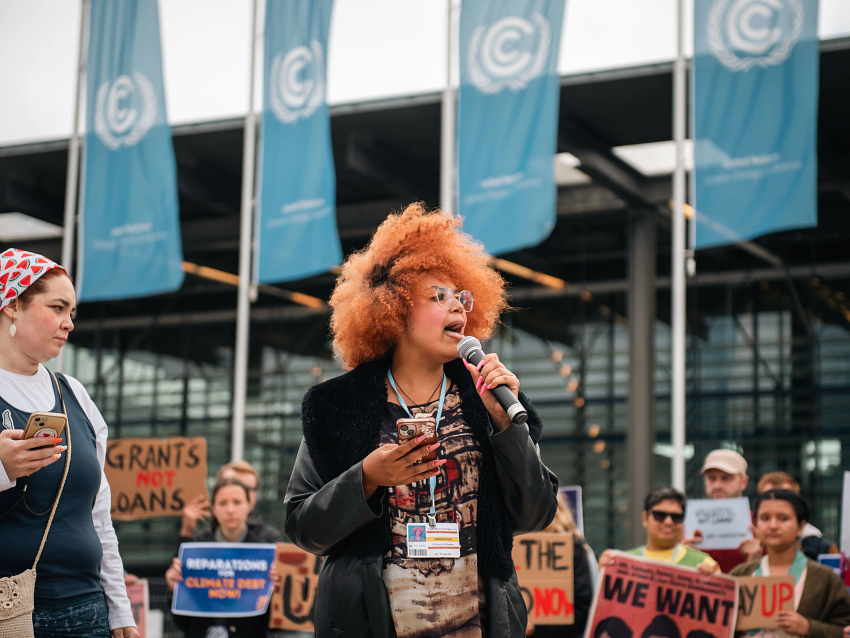
Year after year, we're seeing record-breaking high temperatures and climate disasters. While we and the most vulnerable communities face the worst consequences of the climate breakdown, our political leaders lag behind on taking the actions needed to stop our planet from overheating. At the 2023's UN Climate Conference (COP28), they agreed to "triple global renewable energy" and "accelerate the transition away from fossil fuels". Now, they need to walk the talk!
Countries are expected to submit their climate change action plans, known as Nationally Determined Contributions (NDCs), in 2025 – and these climate goals need to be ambitious, transparent and have justice principles as their main compass: finance must be moved away from fossil fuels and invested into accessible and affordable renewable energy.
Our Demands
We need NDCs to:
Commit to a fossil fuel phase out, with a clear timeframe
Commit to a measurable, ambitious and time-bound renewable energy goal
Follow justice principles, putting people over corporate profit
Every fraction of a degree matters, and every minute too. We don't have any more time to waste – we need real and bold climate action now. Join us in demanding climate ambition!
SIGN THE OPEN LETTER
To world leaders: set ambitious climate goals!
To Heads of State,
We co-sign the letter to demand ambitious national climate goals. These goals must stop the worst effects of global heating and commit to equitable just solutions to the crisis. We call on you to do everything in your power to ensure countries’ plans:
- Commit to phasing out fossil fuels and cut greenhouse gases with a clear timeframe
- Commit to measurable, ambitious, and renewable energy goals that are time-bound
- Create jobs, attract quality investment, and ensure fairness
- Provide fair and equitable financial support to poorer communities to transition away from fossil fuels and to renewables
Add your name:
The open letter is signed by several organisations including E3G, International Institute for Sustainable Development, C40, Plamares Lab, We Mean Business Coalition, Natural Resources Defence Council, Oil Change International, ECCO Think Tank, Global Climate and Health Alliance, Climate Crisis Advisory Group, Global Citizen, Union of Concerned Scientists, Transforma, Germanwatch e.V., Agape Earth Organization, Care About Climate, Global Covenant of Mayors for Climate and Energy, and MADANI Berkelanjutan, Green Alliance, and Instituto Talanoa.
FAQs
Updates
Check out our take on some NDCs:
►► Help 350.org build a powerful climate movement.
We believe in a safe climate and a better future — a just, prosperous, and equitable world built with the power of ordinary people. Help us get there!

